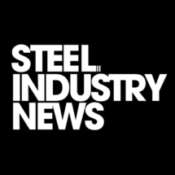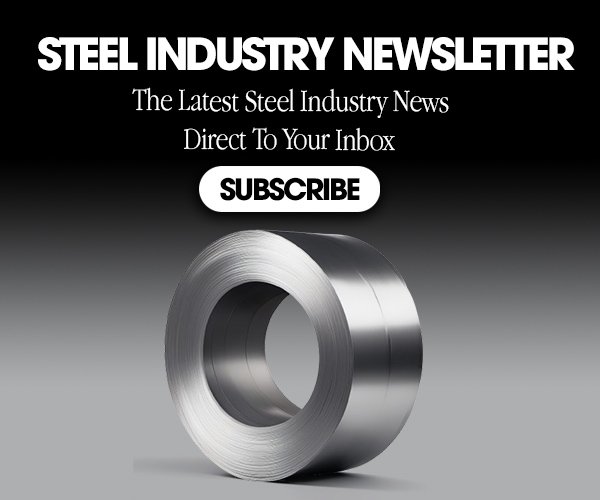The July 2025 Steel Industry News Community Pricing Poll reveals a divided but cautiously optimistic steel market, with 560 industry professionals providing unprecedented insight into pricing expectations for the remainder of 2025. With steel prices currently hovering around $900 per ton, the poll results indicate a market grappling with significant uncertainty while moderate price increases emerge as the most likely scenario.
July 2025 Community Poll Results: A Market in Transition
The comprehensive polling of 560 steel industry professionals presents a revealing snapshot of market sentiment, with responses distributed across four distinct price scenarios for the end of 2025.
| Price Category | Votes | Percentage |
|---|---|---|
| Major Rise (over $1,000+/ton) | 95 | 17% |
| Moderate increase ($900–$999/ton) | 215 | 38% |
| No Change (~$900/ton) | 111 | 20% |
| Declining ($800-$899/ton) | 139 | 25% |
July 2025 Steel Industry Community Pricing Poll Results showing distribution of price expectations among 560 industry professionals
Moderate price increases emerged as the dominant expectation, with 38% of respondents (215 votes) predicting steel prices will reach the $900-$999 per ton range by year-end. This represents the largest single cohort of responses, suggesting that many industry professionals anticipate continued upward pressure on prices while remaining realistic about the magnitude of potential increases.
The bearish sentiment remains substantial, with 25% of respondents (139 votes) expecting declining prices in the $800-$899 per ton range. This reflects concerns about weakening demand and potential oversupply conditions that could pressure prices downward through the remainder of 2025.
Price stability around current levels garnered 20% support (111 votes), indicating that one-fifth of industry professionals expect the market to find equilibrium near existing price points of approximately $900 per ton. Only 17% anticipate a major price surge above $1,000 per ton, suggesting limited expectation for dramatic price increases despite ongoing market dynamics.
Comparative Analysis: Evolution from May to July 2025
The July 2025 poll results reveal significant shifts in community sentiment when compared to the May 2025 Steel Industry News Community Pricing Poll, which surveyed 282 industry professionals.
| Metric | May 2025 | July 2025 | Change |
|---|---|---|---|
| Bullish Sentiment | 37% (Going Up) | 38% (Moderate + Major Rise) | +1% |
| Bearish Sentiment | 38% (Going Down) | 25% (Declining) | -13% |
| Stable Sentiment | 26% (Staying Stable) | 20% (No Change) | -6% |
| Total Respondents | 282 | 560 | +98% |
The evolution in sentiment reflects several key developments. Bearish expectations declined significantly from 38% in May to 25% in July, suggesting that some of the pessimism evident in the spring has moderated. This shift coincides with the implementation of 50% steel tariffs in early June 2025, which has provided more pricing support for domestic producers.
The May 2025 poll showed a market in near-equilibrium, with 37% expecting price increases and 38% predicting declines. By July, this dynamic had shifted toward more optimistic expectations, with combined bullish sentiment (moderate and major increases) reaching 55% of respondents, compared to 37% bullish sentiment in May.
Primary Market Drivers Shaping Community Sentiment
Tariff Implementation and Import Competition
The 50% steel tariffs implemented on June 4, 2025, represent the most significant policy influence on current market sentiment. These tariffs, which doubled from the previous 25% rate, have fundamentally altered competitive dynamics by making imported steel significantly more expensive and reducing foreign competition pressure on domestic producers.
The tariff impact is already visible in domestic steel pricing. Major producers including Cleveland-Cliffs and Steel Dynamics announced price increases in the second quarter of 2025, with Cleveland-Cliffs price at $950/ton for June 2025. Nucor’s Consumer Spot Price reached $900 per ton by mid-July 2025, reflecting the sustained pricing environment created by reduced import competition.
Demand Dynamics and End-User Industry Conditions
U.S. steel production capacity utilization reached 78.4% in the week ending July 26, 2025, representing a 4.8% increase compared to the same period in 2024. This healthy utilization rate, approaching the 80% threshold that the American Iron and Steel Institute considers optimal for industry profitability, supports moderate price increase expectations.
Automotive sector demand remains mixed, with some manufacturers expressing concern about higher input costs from steel tariffs. Daimler Truck North America reported adding approximately $3,000 to the cost of school buses when tariffs were at 25%, highlighting how steel price increases flow through to end-user products. The automotive industry’s adjustment to higher steel costs influences community sentiment about sustainable price levels.
Construction industry impacts are becoming increasingly apparent. These cost pressures in steel-intensive construction create both opportunities for domestic producers and constraints on demand growth that influence polling sentiment.
Raw Material and Input Cost Pressures
Scrap steel market dynamics continue to influence production economics and pricing expectations. Recent market conditions showed ferrous scrap prices declining in May 2025. However, competition for scrap from expanding EAF capacity continues to provide some support for input costs.
Energy and transportation costs add additional complexity to production economics. Rising fuel surcharges and increased raw material surcharges for products reflect broader input cost pressures that support expectations for moderate price increases.
U.S. Market Implications for Steel Consumers and Manufacturers
Manufacturing Sector Cost Pressures
The poll results have significant implications for steel-consuming manufacturers across multiple industries. Metal packaging manufacturers face increased costs that must either be absorbed or passed through to consumers. The Can Manufacturers Institute has expressed strong opposition to the tariff increases, noting that “doubling the steel tariff will further increase the cost of canned goods at the grocery store”.
Manufacturing competitiveness is being challenged by higher steel input costs. Ford CEO Jim Farley noted that even though Ford sources most steel domestically, “our suppliers have international sources for aluminum and steel. So that price will come through”. This supplier-level impact demonstrates how steel price increases permeate throughout industrial supply chains.
Small and medium-sized manufacturers face particular challenges from steel price increases. The Precision Metalforming Association and National Tooling and Machining Association represent thousands of smaller manufacturers experiencing “price shocks, order delays, and uncertainty in their customer relationships”. These impacts influence community sentiment about the sustainability of higher price levels.
Construction Industry Adaptation
Construction cost escalation represents one of the most direct impacts of steel price increases. Structural steel escalation is currently hovering around 5% to 8%, but industry analysts expect this could rise quickly as tariff effects fully materialize. Coil-based steel products, including hollow structural sections and bar grating, have already surged by as much as 50% since January 2025.
Project economics are being fundamentally altered by steel cost increases. Large-scale developments, including high-rise apartments and office buildings, face the greatest financial strain due to their reliance on structural steel. Infrastructure projects, including roads and bridges, also experience significant cost escalations that influence long-term demand patterns. The construction industry’s adaptation to higher steel costs creates both challenges and opportunities that influence community pricing expectations.
Regional Market Differentiation
Domestic production advantages have become more pronounced following tariff implementation. U.S. steel producers benefit from reduced import competition while maintaining access to domestic raw materials and established customer relationships. This competitive advantage supports the moderate price increase expectations reflected in the July poll results.
Regional price variations may emerge as transportation costs and local supply-demand balances create market differentiation. Areas with greater historical dependence on imported steel may experience larger price increases, while regions with strong domestic production capacity may see more moderate adjustments.
Supply chain localization trends are accelerating as manufacturers seek to reduce exposure to trade policy volatility. This shift toward domestic sourcing supports sustained demand for U.S. steel production and reinforces expectations for stable to moderately higher pricing.
Market Outlook for the Balance of 2025
Short-Term Price Trajectory
The consensus expectations from the July 2025 community poll suggest steel prices will likely experience moderate volatility through the remainder of 2025, with the $900-$999 per ton range representing the most probable outcome. Current market indicators support this expectation, with Nucor’s Consumer Spot Price stabilizing at $900 per ton through late July.
Seasonal demand patterns may influence price movements through the autumn construction season. Traditional fall construction activity could provide temporary support, though this may be moderated by concerns about project economics at higher steel price levels. The balance between seasonal demand strength and cost-conscious purchasing behavior will influence actual price movements.
Inventory management strategies by service centers and end-users will play a crucial role in price stability. Conservative inventory approaches learned from previous volatility cycles may help dampen price swings and support the moderate increase expectations reflected in community polling.
Policy and Trade Considerations
Tariff policy stability remains a key uncertainty factor. While the 50% steel tariffs appear to have broad political support, potential adjustments or exemptions could influence pricing dynamics. The U.S.-UK Economic Prosperity Deal already provides an exemption example that could be extended to other trading partners under certain circumstances.
Potential Retaliatory measures from trading partners could create additional market complexity. Responses to the tariffs could create uncertainty and volatility in global steel markets that influences domestic pricing.
Trade enforcement activities, including anti-dumping investigations and circumvention cases, will continue to shape competitive dynamics. Enhanced enforcement of steel content reporting requirements creates additional compliance costs that support higher domestic pricing.
Industry Structure Evolution
Capacity utilization optimization remains a key focus for domestic producers. The American Iron and Steel Institute recommends maintaining capacity utilization at or above 80% to ensure industry profitability and investment capability. Current utilization rates approaching this threshold support moderate price increase expectations.
Investment in modernization continues across the domestic steel industry, with major producers investing in AI, Robotics, Electric Arc Furnace technology and other efficiency improvements. These investments require sustained profitability that supports higher price levels while improving long-term competitiveness.
Market consolidation trends may accelerate as smaller, less efficient producers face challenges from both input cost pressures and competitive dynamics. This consolidation could reduce excess capacity over time and provide more sustainable pricing conditions that align with community poll expectations.
Conclusion: Navigating Steel Market Uncertainty
The July 2025 Steel Industry News Community Pricing Poll reveals a market characterized by cautious optimism tempered by significant uncertainty about future developments. With 38% of industry professionals expecting moderate price increases and 25% anticipating declines, the steel market faces a period of continued volatility and adjustment.
Key implications for steel market participants include the need for enhanced supply chain flexibility, cost management strategies, and scenario planning capabilities. The 50% steel tariffs have created a new market environment that provides opportunities for domestic producers while challenging steel-consuming industries to adapt to higher input costs.
Strategic considerations for the remainder of 2025 include monitoring policy developments, managing inventory exposure, and developing supplier diversification strategies that account for the changed competitive landscape. The community polling results suggest that moderate price adjustments, rather than dramatic swings, represent the most likely scenario for market participants to navigate.
Disclaimer:
Nothing in this article constitutes financial, investment, or business advice. The information provided is for informational purposes only and should not be relied upon as a substitute for independent financial or professional advice. Readers are encouraged to consult their own advisors before making any decisions related to steel pricing or industry investments.
SOURCES
https://steelindustry.news/steel-industry-news-community-pricing-poll-may-2025-where-are-steel-prices-heading-next/
https://mepsinternational.com/gb/en/news/us-long-steel-product-prices-to-rebound-in-2025
https://steelindustry.news/steel-pricing-update-an-analysis-of-market-forces-and-industry-strategies/
https://steelindustrynews.substack.com/p/steel-industry-news-poll-where-do
https://www.steelonthenet.com/market-outlook.html
https://www.manufacturingdive.com/news/trump-steel-tariffs-industry-impact-jobs-costs-2025/739832/
https://steelindustrynews.substack.com/p/steel-industry-news-podcast-04-may
https://www.jpmorgan.com/insights/global-research/commodities/aluminum-steel-copper-prices
https://www.saul.com/insights/blog/impact-steel-tariffs-construction-industry
https://www.linkedin.com/posts/steelnews_steel-steelnews-steelindustry-activity-7330950871524016129-zTu9
https://www.industrialtube.com/blog/2025/05/19/the-state-of-steel-may-2025/
https://time.com/7291234/trump-tariffs-steel-aluminum-prices-businesses/
https://x.com/steel_news/status/1925185191028421010
https://www.fastmarkets.com/insights/north-american-steel-outlook-2025-demand-to-rise-with-automotive-output-2025-preview/
https://www.bls.gov/opub/btn/volume-14/the-impact-of-covid-on-the-price-of-steel-in-three-phases.htm
https://steelindustry.news/category/steel-mills/pricing/
https://agmetalminer.com/2025/03/18/when-will-steel-prices-peak/
https://www.ryerson.com/metal-resources/metal-market-intelligence/steel-prices-in-uncertain-economic-times
https://steelindustry.news/tag/steel-community-poll/
https://www.oecd.org/en/publications/2025/05/oecd-steel-outlook-2025_bf2b6109.html
https://www.indeavor.com/blog/2025-american-steel-tariffs/
https://www.npr.org/2025/03/12/nx-s1-5325933/steel-aluminum-tariffs-autos
https://www.steelorbis.com/steel-news/latest-news/us-raw-steel-production-is-up-09-percent-week-on-week-1391210.htm
https://www.uschamber.com/international/how-the-steel-and-aluminum-tariffs-are-hurting-u-s-manufacturing
https://www.constructiondive.com/news/new-steel-aluminum-tariffs-push-construction-costs-higher/749931/
https://www.steel.org/industry-data/
https://www.bcg.com/publications/2025/june-2025-update-impact-us-tariffs-50-percent-on-steel-aluminum
https://www.steelcobuildings.com/2025-steel-tariffs-and-rising-metal-building-costs/
https://www.nytimes.com/2025/07/22/business/steel-prices-tariffs.html
https://worldsteel.org/media/press-releases/2025/june-2025-crude-steel-production/
https://www.packagingdive.com/news/packaging-manufacturers-tariffs-steel-aluminum-doubled/749544/
https://www.bcg.com/publications/2025/us-tariffs-steel-aluminum-analyzing-impacts
https://www.industrialtube.com/blog/2025/03/21/the-state-of-steel-march-2025/
https://www.piie.com/blogs/realtime-economics/2025/trumps-tariffs-enrich-steel-barons-high-cost-us-manufacturers-and
https://www.gordian.com/resources/steel-price-updates/
https://www.steel.org/wp-content/uploads/2025/01/AISI-Steel-Priorities-2025-FINAL.pdf
https://www.whitehouse.gov/fact-sheets/2025/06/fact-sheet-president-donald-j-trump-increases-section-232-tariffs-on-steel-and-aluminum/
https://steelindustry.news/inflation-in-2025-causes-effects-and-the-role-of-tariffs-in-the-steel-industry-and-beyond/
https://steelindustry.news/nucor-announces-price-increase/
https://steelindustry.news/the-us-economy-and-steel-industry-outlook-for-2025/
https://steelindustry.news/nucor-lowers-steel-pricing-in-market-reversal/
https://www.focus-economics.com/commodities/base-metals/steel-usa/
https://www.eurofer.eu/assets/publications/economic-market-outlook/economic-and-steel-market-outlook-2025-2026-first-quarter/EUROFER_Economic-Report-Q1-2025.pdf
https://www.wxpr.org/business-economics/2025-02-13/local-manufacturer-concerned-about-impacts-to-business-and-consumers-with-latest-steel-tariffs
https://gmk.center/en/news/nucor-raises-prices-for-hot-rolled-steel-by-5-t/
https://www.fastmarkets.com/insights/stainless-steel-price-forecast-2025-global-regional-market-analysis-asia-europe-us/
https://steelindustry.news/steel-industry-news-community-poll-reactions-to-the-50-steel-tariffs/
https://www.steelmarketupdate.com/2025/07/21/nucor-lowers-hr-price-to-900-ton/
https://www.steelmarketupdate.com/2025/07/28/nucor-spot-hr-list-price-unchanged-at-900-ton/
https://www.metal.com/en/newscontent/103268910
https://www.industrialtube.com/blog/2025/07/21/the-state-of-steel-july-2025/
https://www.fitchratings.com/research/corporate-finance/neutral-sector-outlook-for-global-steel-in-2025-12-12-2024
Check out our most recent articles below:
- Hyundai and Boston Dynamics Unveil All‑Electric Atlas Robot: Transforming the Future of Steel Production, Distribution, and Auto Manufacturing
- Nucor Continues to Hold Steel Price at $950/Ton: What Q1 2026 Holds for Steel Prices, Tariffs, and Market Recovery
- 🎉Ring In 2026 with Industry Insights
- Steel Industry Insights: A Guide to Tracking Metrics, Predicting Trends, and Making Strategic Business Decisions in the Steel Industry
- Nucor Raises Prices for 9th Consecutive Week: What the Latest Increase Means for the Steel Market
📬 Enjoying this article? Don’t miss the next one.
SUBSCRIBE below to the Steel Industry News email newsletter to get the latest updates delivered straight to your inbox. Includes a comprehensive reporting of all key topics impacting the steel industry. 🌍The Most Recent Steel News Reports — in one easy-to-read weekly format
🔐 Annual Plan: Just $300/year – that’s 6 months free . – 💰 Best value of unbiased, timely reporting in the industry.
🤝Operational Support: Your paid subscription support helps keep Steel Industry News independent and ad-light
FREE for paid subscribers
🎧 Exclusive Steel Industry News Podcast— Listen on the go! Includes insights, trends & commentary you won’t find anywhere else
📘 Exclusive EBooks
📘 The Steel Handbook – A Guide To Understanding Steel
📘 Lucky 13: Proven Strategies to Boost B2B Sales Performance
📘 Purchasing Strategies For Success
📘 AI for Steel and Manufacturing: Unlocking Innovation and Efficiency
📘 Cybersecurity in Steel and Manufacturing: Protecting Your Assets in a Digital Age
📊 Steel Industry Insights – Our Insights & Guide track key market indicators weekly —like mill pricing, input costs, and demand trends —to help readers clearly understand what’s driving steel prices and where the market is headed.










